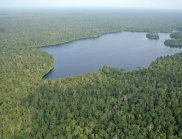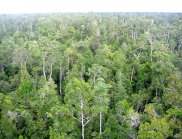Research supports a new approach to counting CO2 emissions
Ecosystems, mainly forest and oceans, remove around 54 per cent of CO2 emitted by deforestation and fossil fuel combustion each year. The concentration of atmospheric CO2 would increase more than twice as fast as observed if it were not for these natural sinks.
Scientists suggest in a pioneering study published Monday in the journal Nature Climate Change that national climate change policies could consider the contribution of each emitting region to the increase in atmospheric carbon dioxide and place a value on regional ecosystems or sinks that absorb the CO2.
Co-author and Executive-Director of the Global Carbon Project, CSIRO’s Dr Pep Canadell, said that for some time there have been discussions about how to attribute the build-up of atmospheric CO2 between developed countries like Australia, the US and Japan, and developing countries in Asia, Africa and South America. These studies did not consider land and ocean carbon sinks.
Dr Canadell said that research “tracked”, through modelling, the origin and fate of CO2 molecules emitted from fossil fuels and deforestation to determine their ultimate contribution to the growth in atmospheric CO2 and to the enhancement of carbon sinks.
“We show that developed countries are responsible for over 80 per cent of atmospheric CO2 from human activities since 1850 but the share attributed to the developing world is rapidly increasing.
“Countries and their CO2 emissions also contribute to the creation of CO2 sinks, however, through reforestation and the fertilisation effect of atmospheric CO2 and nitrogen deposition on plant growth. We find, for instance, that more than half of the emissions from African and Latin American countries since 1850 have been offset by their own land carbon sinks.”
The study also reveals that not only nations’ own carbon sinks are important but also that emissions from developed countries since 1850 have created additional sinks in tropical regions equivalent to 13 years worth of their own emissions (at current levels). The maintenance of these carbon-accumulating tropical forests constitutes a massive sink service from tropical developing nations to developed nations.
Dr Canadell said decreasing the risk of dangerous climate change requires a decline in future emissions of CO2 to the atmosphere and ultimately requires the complete decarbonisation of the energy system.
Dr Canadell said that carbon accounting systems are human inventions to explore different ways to attribute responsibilities for the growth of atmospheric CO2 and the level of intervention necessary for a given climate stabilisation scenario. “The broader questions of who is responsible for what and who owes what to whom are judgments beyond science, though they are informed by the science,” he said.
This study shows how a regionalised attribution of land and ocean carbon sinks, in addition to carbon emissions, alters the picture by accounting for the “sink service” provided by regions that are large absorbers of CO2. This approach can inform policy development that leads to the maintenance and enhancement of the ‘sink service’ between nations.
Dr Canadell said decreasing the risk of dangerous climate change requires a decline in future emissions of CO2 to the atmosphere and ultimately requires the complete decarbonisation of the energy system.
The paper was prepared for the Global Carbon Project, a joint initiative of several international research organisations, to track and analyse the interactions among the carbon cycle, human activities and the climate system.
Media resources
Click image for high resolution version


